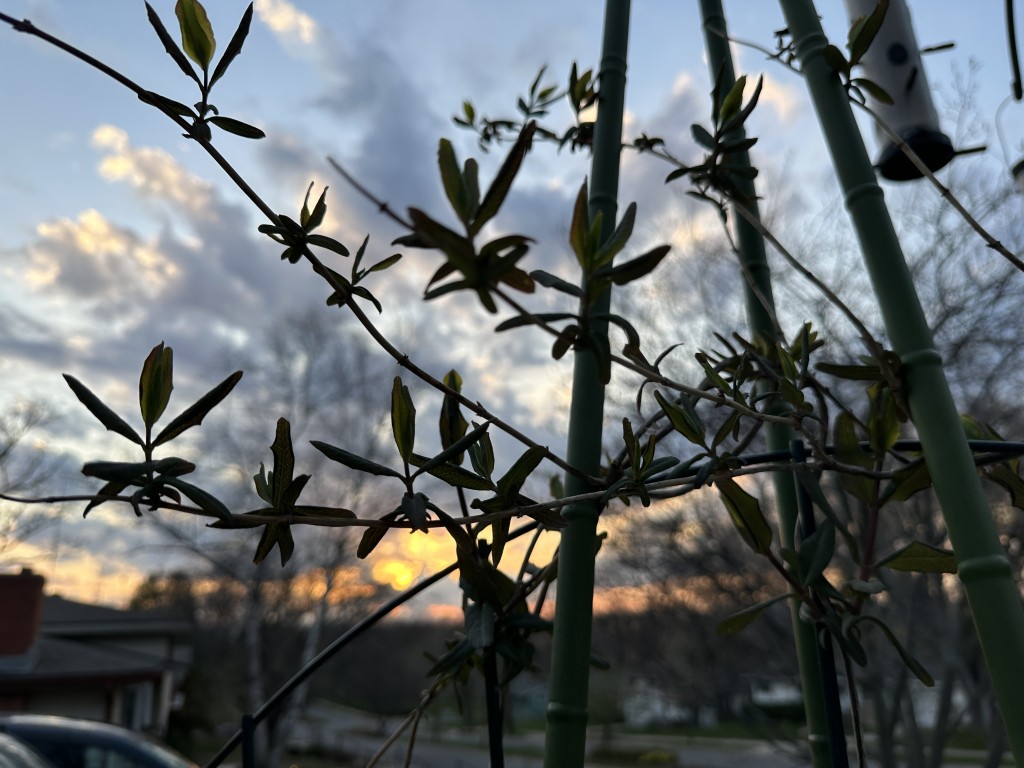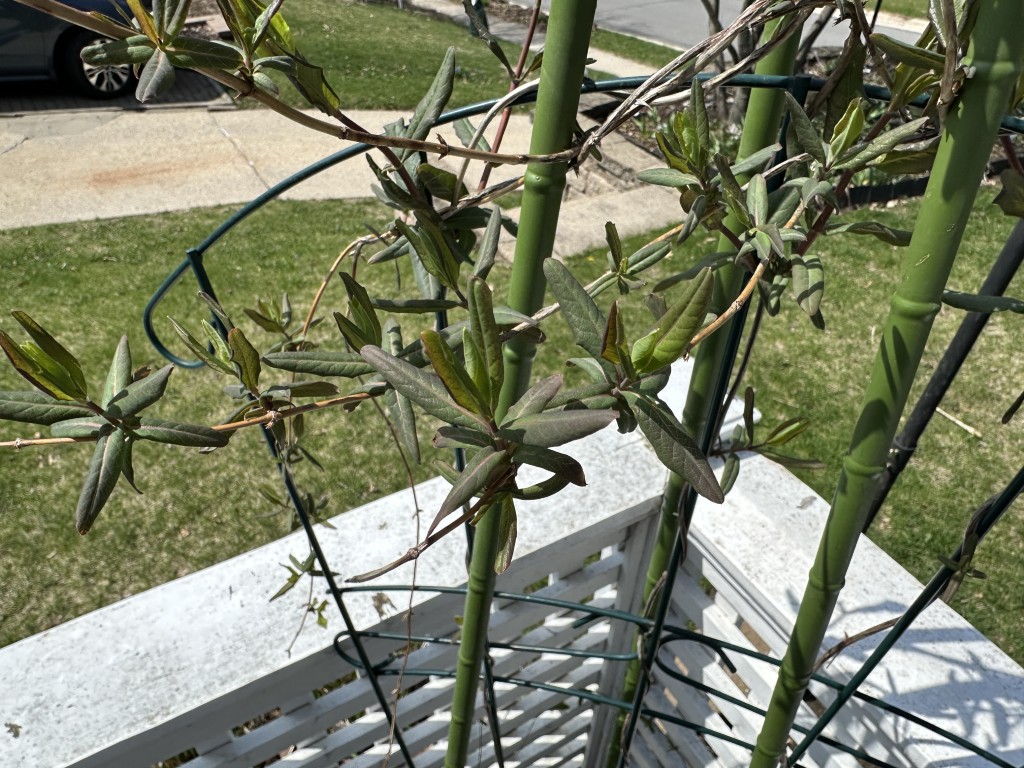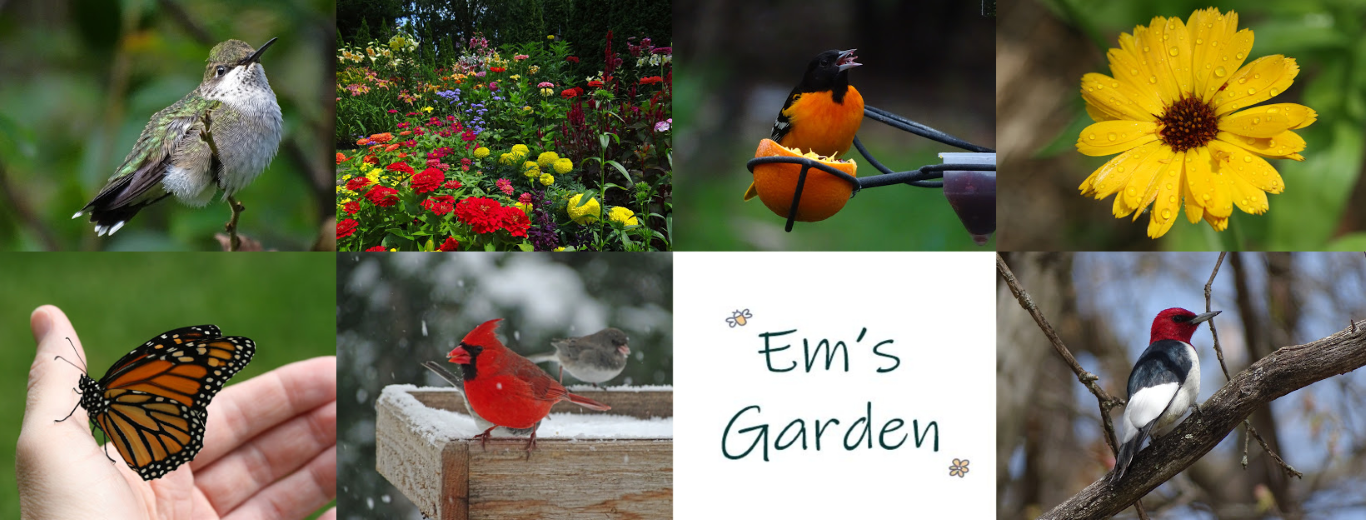Last year I purchased a ‘Major Wheeler’ honeysuckle vine from a local nursery.
It’s native to the southeastern United States, but not Wisconsin. However the little coral-red flowers attract hummingbirds, butterflies and other pollinators. And as a bonus, the plant is not invasive like other species of honeysuckles.
It climbed about 3.5 feet last year and sent out a handful of flowers at end of the growing season.

The plant is hardy in Zones 4-8. However growing it in a barrel meant my plant’s roots were exposed to the full brunt of winter. We had several stretches of below-zero temperatures with no protective snow cover, so I assumed the plant would be toast.
This spring I indeed noticed that the vines were a little brown and crispy-looking. So imagine my surprise when I was taking a photo of the sunset the other night, and I noticed all these new leaves popping up from those crispy vines.

‘Major Wheeler’ is named after an Air Force Major, Charles Wheeler. The vine grows 6 to 10 feet tall. It’s drought-tolerant, although it prefers some shade on its roots to conserve moisture. For that reason I filled the rest of the barrel with short marigolds last year.
The hummingbird-magnet, coral-red flowers are 2 inches long. While the main flowering period is in late spring, flowers can appear through early fall.
The vines need a little tying up at first (which I need to do with all this new growth!). But once they are established they will twist and climb on their own.

I’m looking forward to many more blooms this spring!
